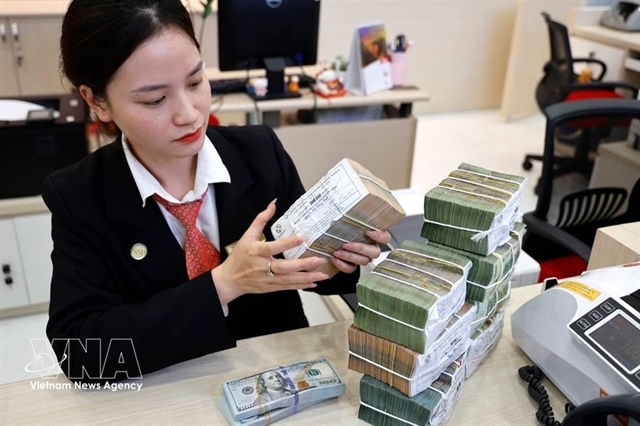Banks defend bailout of Hoang Anh Gia Lai
Banks defend bailout of Hoang Anh Gia Lai
The State Bank of Vietnam’s decision to help Hoang Anh Gia Lai Group overcome its enormous debts has sparked a controversy among market players.

On May 17, the State Bank of Vietnam (SBV) gave the nod to the commercial banks’ proposals to bail out the debt-ridden Hoang Anh Gia Lai Group (HAGL). Solutions include restructuring HAGL’s debts, extending the repayment period, reducing interest rates, and maintaining the firm’s current credit score. The banks also proposes the SBV to refinance HAGL’s lenders with a favourable interest rate of 6.5 per cent.
The central bank will submit the proposal to the prime minister this week for final approval. The 2015 general meeting for HAGL’s shareholders will only take place after the firm’s debt problems are sorted out.
HAGL, which operates in multiple sectors such as agriculture, power generation and mining, has been encumbered by debt over recent years. At the end of 2015, total debts at the firm reached VND33 trillion ($1.38 billion), which is twice the owners’ equity. Of this, short-term loans account for 40 per cent.
The biggest lenders to HAGL include the Bank of Investment and Development of Vietnam (BIDV), Eximbank, and VPBank, whose loans stand at VND10 trillion ($450 million), VND3.9 trillion ($180 million), and VND2.8 trillion ($130 million) respectively. In addition, the firm has borrowed funds from HDBank, Lao Viet Bank, and Sacombank, either through loans or the issuance of bonds.
Rumours of loan defaults have thus wreaked havoc on the firm’s share prices, which plummeted by 50 per cent throughout last year. During the same period, foreign ownership at HAGL also dropped from over 30 per cent to just 13 per cent as overseas investors fled from the firm.
The SBV’s proposal to rescue HAGL has been met with mixed reaction as market insiders have questioned whether or not it is a fair decision. Some firms argue that only large companies like HAGL ever receive this favourable treatment as they are considered “too large to fail”.
In response, Tran Bac Ha, chairman of BIDV, stressed that the offer to help HAGL is justifiable. According to Ha, HAGL has fostered a strong 20-year relationship with BIDV and seldom missed payments.
“We believe that when firms encounter difficulties, banks should stand with them, instead of defaulting them and seizing their assets. The problem with HAGL now is liquidity, not their ability to repay loans, so a little help is necessary to get them back on their feet,” said Ha at BIDV’s general meeting.
Other banks also pointed out that low commodity prices, especially rubber, have plagued HAGL’s sales in the past year, thus impacting its cash flow. However, the banks still believe in HAGL’s ability to repay, as the firm currently invests in high-technology agricultural projects in Vietnam, Laos, and Cambodia, as well as real estate in Myanmar – all of which take time to reap profits.
According to economic expert Nguyen Tri Hieu, it is noteable that asides from helping HAGL, the banks’ proposal to restructure HAGL’s debts will also benefit the lenders themselves. Specifically, if HAGL defaults on its loans, the banks will have to add a huge amount of bad debt to their financial report, which results in higher risk provision levels and lower profits down the line.
“Restructuring loans is a normal activity for banks as the lenders should help struggling firms overcome their difficulties. For now, I think it’s more crucial that HAGL offers a clear repayment path,” Hieu told VIR.
However, Hieu noted that it would be “unfair” if only large players were given special treatment while smaller ones were left to suffer their bad debts. Following the HAGL case, the SBV should implement clear rules on debt restructuring and payment extension, Hieu added.

























